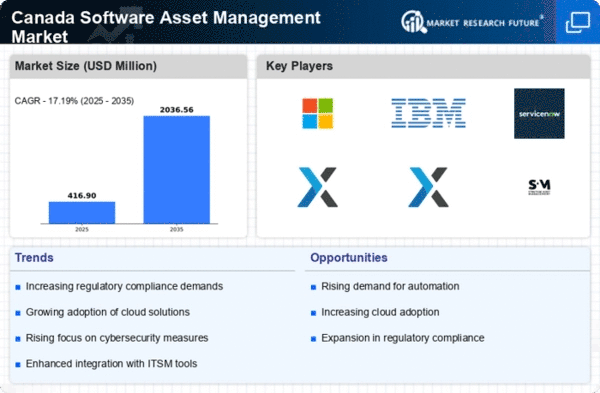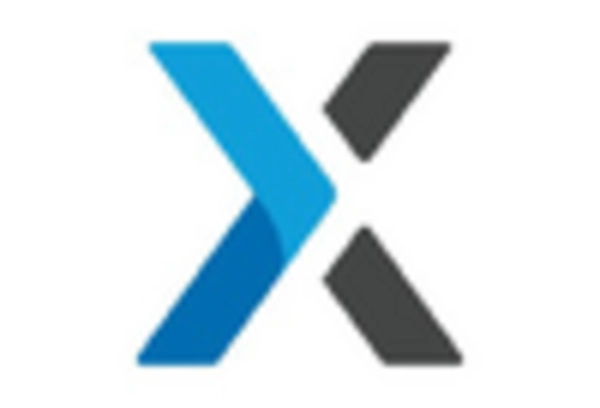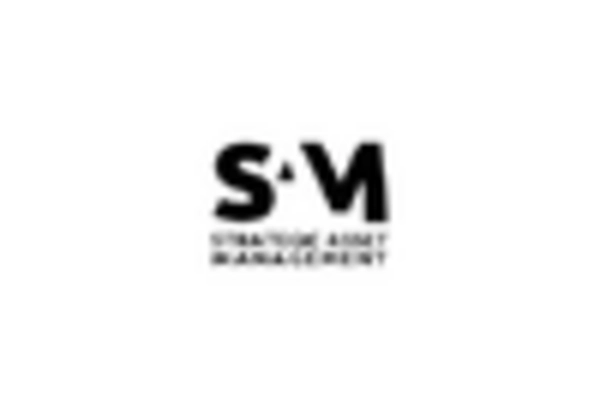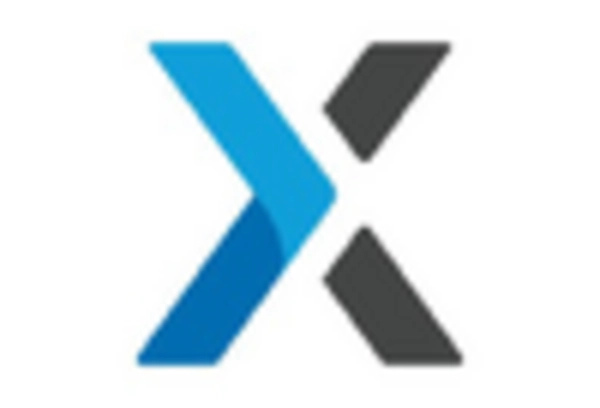Increased Regulatory Pressures
In Canada, the software asset-management market is significantly influenced by heightened regulatory pressures. Organizations are compelled to comply with various legal and industry standards, which necessitates robust software management practices. The Canadian government has implemented stricter regulations regarding software licensing and usage, leading to a greater focus on compliance. Companies that fail to adhere to these regulations may face substantial fines, which can reach into the millions of dollars. As a result, businesses are increasingly investing in software asset management solutions to ensure compliance and mitigate risks. This trend not only protects organizations from potential legal repercussions but also enhances their reputation in the marketplace. The software asset-management market is thus positioned to grow as companies prioritize compliance and governance in their operational strategies.
Emergence of Advanced Analytics
The market in Canada is being propelled by the emergence of advanced analytics technologies. Organizations are increasingly leveraging data analytics to gain insights into software usage patterns and optimize their asset management strategies. This trend is indicative of a broader shift towards data-driven decision-making in the business landscape. By utilizing advanced analytics, companies can identify underutilized software licenses and make informed decisions regarding renewals and purchases. Reports suggest that organizations employing analytics in their software asset management processes can achieve up to a 25% reduction in unnecessary software expenditures. This driver highlights the potential for enhanced efficiency and cost savings, positioning the software asset-management market for continued growth as businesses seek to harness the power of data.
Rising Demand for Cost Efficiency
The market in Canada is experiencing a notable increase in demand for cost efficiency. Organizations are increasingly recognizing the financial benefits of optimizing software usage, which can lead to substantial savings. According to recent data, companies that implement effective software asset management strategies can reduce software costs by up to 30%. This trend is driven by the need to allocate resources more effectively and minimize waste. As businesses strive to enhance their bottom line, the software asset-management market is likely to see a surge in adoption. Furthermore, the emphasis on cost efficiency is pushing organizations to invest in tools that provide better visibility into software usage, thereby facilitating informed decision-making. This driver is crucial as it aligns with the broader economic landscape, where every dollar saved can significantly impact overall profitability.
Growing Importance of Cybersecurity
The market in Canada is increasingly intertwined with the growing importance of cybersecurity. As cyber threats become more sophisticated, organizations are recognizing the need to secure their software assets against potential vulnerabilities. This trend is prompting businesses to adopt comprehensive software asset management practices that include security assessments and compliance checks. According to recent reports, nearly 60% of Canadian organizations have experienced a cyber incident in the past year, underscoring the urgency for robust security measures. By integrating cybersecurity into their software asset management strategies, companies can better protect their intellectual property and sensitive data. This driver not only enhances the security posture of organizations but also fosters trust among clients and stakeholders, thereby contributing to the overall growth of the software asset-management market.
Shift Towards Remote Work Solutions
The market in Canada is witnessing a shift towards remote work solutions, which is reshaping how organizations manage their software assets. As remote work becomes more prevalent, companies are increasingly reliant on software tools that facilitate collaboration and productivity. This shift has led to a surge in demand for software asset management solutions that can effectively track and manage licenses for remote work applications. According to industry estimates, the remote work software market is projected to grow by over 20% annually. Consequently, organizations are investing in software asset management to ensure they have the necessary licenses and compliance for their remote workforce. This driver highlights the evolving nature of work and the need for adaptive software management strategies that align with contemporary work environments.
















